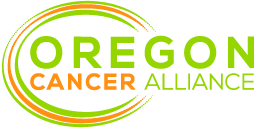It’s estimated that more than half of cancer patients take dietary supplements while undergoing treatment. However, 40-60% of patients do not tell their oncologist, which can have dangerous consequences. Integrative oncology care can reduce the risk of complications by bringing together oncologists and naturopathic doctors.
At Pacific Integrative Oncology in Eugene, Drs. Michelle Niesley and Stacy Dunn are an important part of the care team for patients undergoing cancer treatment.
“Integrative oncology is using the best that conventional oncology has to offer—chemotherapy, radiation and surgery—and combining that with evidence-based recommendations for nutrition, dietary supplements, acupuncture, meditation, massage, physical therapy and all the other things that help to keep a patient healthy during cancer treatment and hopefully keeps them cancer-free,” says Dr. Niesley.
Patients often turn to complementary therapies to relieve side effects of cancer treatment, including:
- Digestive upset
- Fatigue and insomnia
- Changes in sense of taste
- Lymphedema
- Neuropathy
- Depression and anxiety
By working together and sharing information, physicians and naturopathic doctors can reduce a patient’s risk for dangerous interactions.
“When patients are undergoing radiation therapy, that kills cancer cells by oxidizing them, so patients taking high levels of antioxidants like vitamin C, acetylcysteine, glutathione—those all have the potential to interfere with radiation therapy,” Dr. Nielsey says. “There’s several chemotherapies, tamoxifen and a few others, that may not go so well with the herb curcumin, which is actually derived from turmeric.”
“I can’t keep up with every supplement that’s offered on the internet,” says Dr. Benjamin Cho, a medical oncologist at Willamette Valley Cancer Institute and Research Center in Eugene. “When we work with a cancer naturopath, they can tease out what works and what doesn’t.”
Dr. Cho and other oncology providers in the community recognize the benefits of integrative oncology and how collaboration with naturopathic doctors helps address patient needs, beyond standard cancer treatment
“In addition to oncologists and cancer naturopaths, we’ve developed a network of specialty providers, including social workers, dietitians, psychologists, acupuncturists and massage therapists, to help patients address things like nutrition, reducing pain and stress and getting a better night’s sleep,” he says. “Integrative oncology care is about bringing in other providers to help treat the entire patient, not just their cancer, and through means other than just medications.”
Collaboration to treat the whole patient
As fellows of The American Board of Naturopathic Oncology, Drs. Dunn and Niesley are naturopathic doctors who specialize in oncology. Using evidence-based naturopathic therapies, their goal is to help improve patients’ quality of life during and after cancer treatment. Dr. Dunn also holds a Master of Science in Oriental Medicine and is highly trained in Chinese medicinal herbs and acupuncture, both of which have been shown to be beneficial in reducing side effects, such as hot flashes, neuropathy and sleep issues.
These naturopathic doctors are also members of the Oregon Cancer Alliance and participate in regular tumor board meetings. Tumor boards are led by a pathologist and radiologist and are attended by surgeons, medical oncologists, radiation oncologists and other specialists. The physicians gather on behalf of patients to discuss individual cases in detail. This kind of collaboration helps ensure patients get the best treatment as seamlessly as possible.
Dr. Niesley says, “When we take the best of conventional care patients are receiving—chemo, radiation and surgery—and combine that with proper diet, nutritional supplements, quality sleep and stress reduction, that’s really when I see the best outcomes—when we’re working together.”
